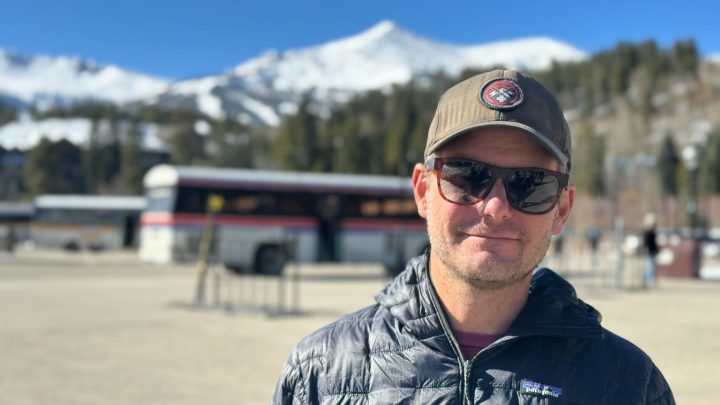
Ski patrollers warm to unions to cope with low pay, high costs in resort areas
Ski patrollers warm to unions to cope with low pay, high costs in resort areas

Jake Miller grew up a skier. On mountains as a kid, he would watch out for patrollers dashing around on high-stakes rescue missions.
Last year, when he became old enough, he applied to join the ski patrol ranks at Eldora Mountain Resort in Boulder County, Colorado.
“I love it. It’s the most amazing job I’ve ever done,” he said.
He loves being able to help people in emergencies, and the job can be thrilling. He even learned how to handle explosives to prevent avalanches. But finding housing he can afford in a resort town can be impossible. Miller’s job pays $18 an hour in a community where the median home price hovers around $1 million. So he has to live a couple of towns away.
“Driving an hour or two from work each day, which of course puts wear and tear on the vehicle and the gas expenditure,” Miller said.
Miller wants patrolling to be his career. He asked for a raise, but when it didn’t happen, he and other patrollers went another route.
“It doesn’t seem like the one-to-one relationship with our employer is really getting us results,” he said. “And I think collective bargaining is a more transparent and unified way to have a seat at the table”
It’s been a busy year for labor organizing in the United States. Auto workers, Kaiser Permanente nurses and actors have all gone on strike — and won big wage gains. Now, the unionization movement is making its way to higher elevations, such as ski resorts in the Mountain West.
Many ski patrollers see unionizing as a way to carve out a life in expensive resort towns.
Eldora’s union vote will take place this winter. If it goes through, the workers would join the United Professional Ski Patrols of America. The union reports that it has seen its membership double over the past five years to nearly 1,000.
That swell has a lot to do with the higher cost of housing and other needs these days, according to Erin Hatton, a labor researcher at the University at Buffalo.
“They’re no longer accepting those old terms of, ‘We’ll pay you in fun, and this is just something you would do anyway or that you love,’” Hatton said.
She sees that shift in thinking play out in all kinds of seasonal, adventurous jobs.
“They’re asking for more, and they’re using union organizing drives to get it,” Hatton said. “Whether it’s in terms of wages, whether it’s in terms of recognition and respect, whether it’s in terms of safety protections or all of the above.”
The National Ski Areas Association, a trade group, says it respects workers’ right to organize. But many resorts have pushed back. In a statement, managers from Eldora said they offer competitive pay and are trying to address issues like understaffing.
At Purgatory Resort in southwest Colorado, general manager Dave Rathbun was initially against unionization. Ski patrollers there voted to unionize last year and negotiated a pay boost. Rathbun admits that hiring is easier now.
“It still shows me that people will value this lifestyle and they’re going to try the best they can to make it work,” Rathbun said.
Patrollers say unionizing gives them a stronger voice in talking to big corporations that own many resorts.
At Breckenridge Ski Resort, which is owned by one of the country’s biggest resort companies, Vail Resorts, patrollers and lift operators are in their second winter season under a contract.

Staff members now can earn up to $32 an hour, according to ski patroller Ryan Dineen. That’s a record high, but it’s still not enough for many to live in the community without assistance.
“I live in town-subsidized housing,” he said. “My children go to subsidized day care. And that’s a part of what I think is a flaw in this entire mountain industry.”
The resort has started funding more affordable workforce housing. Dineen said that’s a step toward keeping patrollers, many of whom are trained in medical trauma care and avalanche prevention.
“Those aren’t skills that can be honed over a year or two,” he said. “I’ve been here for 12 years now, and I feel like maybe I’m just starting to get it.”
He’d like to keep working on the mountain for another decade — as long as he can afford it.
There’s a lot happening in the world. Through it all, Marketplace is here for you.
You rely on Marketplace to break down the world’s events and tell you how it affects you in a fact-based, approachable way. We rely on your financial support to keep making that possible.
Your donation today powers the independent journalism that you rely on. For just $5/month, you can help sustain Marketplace so we can keep reporting on the things that matter to you.











